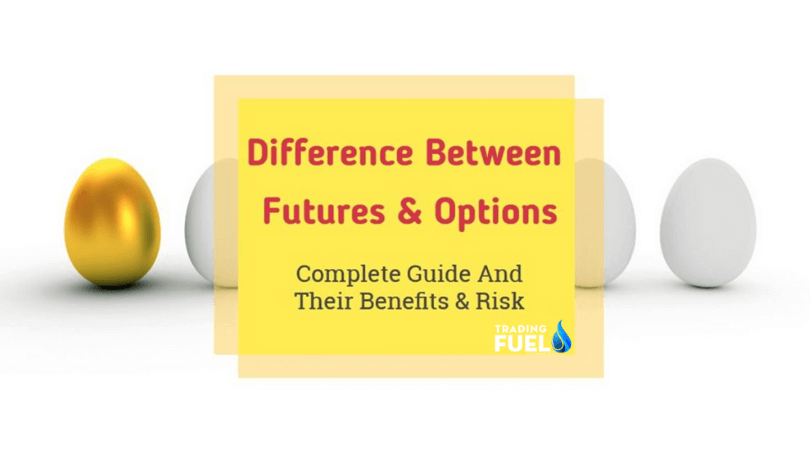Futures, options, swaps, and forwards are the financial derivatives without independent value. Their values depend on the underlying commodities, currency, or security. Many people confuse with futures and options.
This post helps you to know the differences of futures and options. Check the comparative factors to have a better view.
Basics of Futures and Options
Futures and options are derivative contracts traded on BSE and NSE stock exchanges. The value of both are on the basis of the value of the underlying assets. These assets are bonds, stocks, and currencies. Securities and many others are also possible. A margin account is must for both the contracts.
What are Futures and Options
Futures are contracts to trade the financial asset in concern. They are of a standardized volume and quality. Futures are traded at a fix (as in contract) price on a specified future date. Options are reverse of futures in nature. Options are not legal binding like futures. An option contract is a choice of investor and. It is a right but not an obligation. The buyer has a right to execute the option contract at a pre-specified price as per his need.
Comparative of Futures vs. Options
A comparative study of key differences of futures and options will clear all your confusions. Understand the derivatives with the best approach before you buy.
- A future contract is a bidding, while option gives a right and a choice to the investor.
- Future is an obligatory contract. The option is a choice.
- Investors can execute futures only on specific date as per contract. While an investor can execute options on any date before the validity ends.
- A risk factor is high in futures and limited in the options.
- No advance payments are there in futures. Payment is in the form of premiums for the option
The level of profit/loss in the futures is unlimited. In options trading, the degree of profit is unlimited but the degree of loss is within a certain limit.
Difference of Investment Risk
The variation of risk of futures and option is the amount you risk. Investors risk a certain amount while purchasing. The size of the futures contract is always quite larger than the size of options. Size is the value of the contract. The value of the options contact is the difference between the price of buy/sell and its actual price. The difference is quite small and hence options are small in size. But the futures contract is large in size. They are 50 to 100 times the value of the asset. Due to the large size of futures contracts, an investor can gain or lose huge amounts. But in options, an investor can gain or lose only small amounts. The amounts of loss and gain in options are restricted to an extent of the buy/sell price.
Assets Covered under Futures and Options
Many assets come under options and futures. Options contract may buy stocks, real estate, and businesses. You may also buy bonds, commodities, and currencies. Options do not always mean a sale. But they provide a right to sell.
The major ones that are traded with futures are stocks, commodities, and interest rates.
Conclusion :
We are sure now you are able to understand both the derivatives. As the name makes it clear, options are optional. The futures come with the legal binding of selling/buying. It is must to execute the futures but not options. You enjoy higher liberty with options. Both the derivatives are popular in the market. If we go by volume, options enjoy little more popularity.
If you think which one is the best, it depends on the amount you roll out. Futures allow you to trade huge quantities with a margin amount. If you prefer lesser investment, options trading is proper for you.

